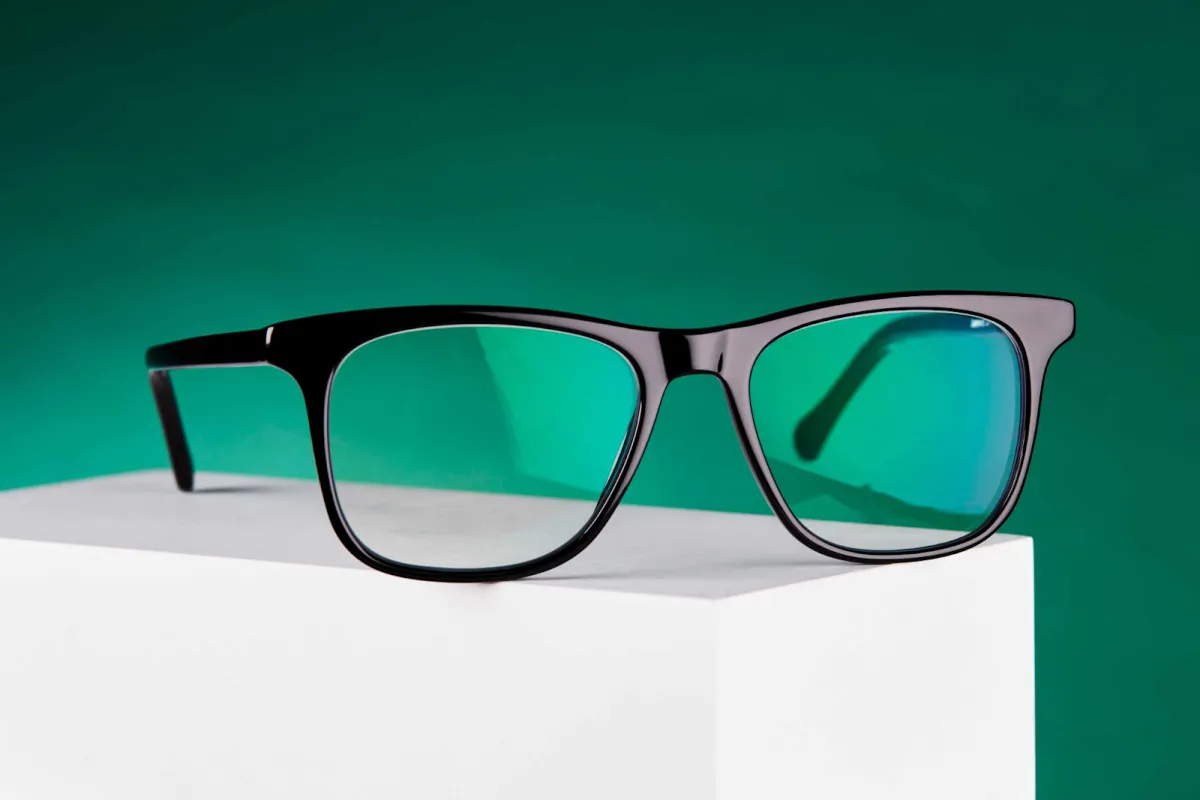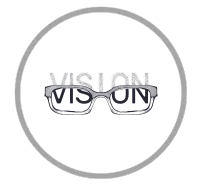Blue Light Glasses
The Science Behind Blue Light Glasses
FSDAVCFEBFEVSDDVFSD
FSDAVCFEBFEVSDDVFSD
FSDAVCFEBFEVSDDVFSD
Do Blue Light Glasses Really Work?
In our digital age, we are constantly surrounded by screens emitting blue light, raising concerns about its effects on our eyes and overall health. With increasing screen time from computers, smartphones, and tablets, people are experiencing more eye strain, headaches, and disrupted sleep patterns.
Blue light glasses have emerged as a popular solution, claiming to filter out harmful blue light and alleviate these issues. This article examines the science behind blue light glasses and evaluates their effectiveness. Are they truly beneficial, or just another eyewear trend? Let’s look at the research and expert opinions to find out.
In our digital age, we are constantly surrounded by screens emitting blue light, raising concerns about its effects on our eyes and overall health. With increasing screen time from computers, smartphones, and tablets, people are experiencing more eye strain, headaches, and disrupted sleep patterns.

Blue light glasses have emerged as a popular solution, claiming to filter out harmful blue light and alleviate these issues. This article examines the science behind blue light glasses and evaluates their effectiveness. Are they truly beneficial, or just another eyewear trend? Let’s look at the research and expert opinions to find out.

What is Blue Light and How Are We Exposed to It?
Blue light is a high-energy visible light with short wavelengths, found naturally in sunlight and emitted by digital screens, LED lighting, and other artificial sources. It sits on the visible light spectrum between 380 and 500 nanometers, making it more intense than other colors. Daily exposure to blue light has increased with the rise of digital devices like computers, smartphones, and tablets, leading to concerns about its impact on digital screen eye health.
The widespread use of these devices means we are exposed to blue light for extended periods, which can lead to digital eye strain and other potential health issues. Knowing how blue light affects our eyes helps assess the need for blue light protection measures such as blue light glasses.
Blue Light and Digital Eye Strain
Prolonged exposure to blue light from digital screens can cause digital eye strain, a common issue in our tech-driven world. Symptoms of digital eye strain include dry eyes, headaches, blurred vision, and neck and shoulder pain. Blue light blocking glasses are marketed as a solution for eye strain relief, claiming to filter out harmful blue light and reduce these symptoms.
The effectiveness of blue light glasses in reducing digital eye strain has been supported by some studies, which suggest that these glasses can improve comfort during long periods of screen use. Balancing screen time with regular breaks, proper lighting, and maintaining a healthy distance from screens can further alleviate digital screen eye health issues. By combining these habits with the use of computer glasses, individuals may find significant relief from the discomfort associated with digital eye strain.
Do Blue Light Glasses Work?

Blue light glasses are designed with special lenses that filter out blue light, offering blue light protection for those who spend a lot of time in front of screens. These glasses aim to reduce digital eye strain by blocking a percentage of blue light emitted by digital devices.
The lenses in blue light blocking glasses are coated with a material that absorbs or reflects blue light, preventing it from reaching the eyes. This mechanism is intended to alleviate symptoms like headaches, eye fatigue, and disrupted sleep patterns caused by prolonged exposure to blue light. Some users report positive results, including better sleep and reduced discomfort, but the effectiveness of blue light glasses varies among individuals. Research continues to explore how well these glasses work and under what conditions they are most beneficial.
Critics argue that the benefits of blue light glasses might be overstated, pointing out that not all studies support their effectiveness. While some research indicates that blue light can contribute to eye strain and sleep disturbances, the extent of its impact is still debated. The human eye naturally filters out some blue light, and not all exposure is harmful. Additionally, digital eye strain can result from factors like screen brightness, screen size, and viewing distance, which may not be mitigated solely by wearing blue light glasses.

Despite the ongoing debate, many users find that blue light glasses help them feel more comfortable during prolonged screen use. The placebo effect might play a role in these reported benefits, as people often feel better when they believe they are taking steps to protect their health. As the popularity of blue light glasses grows, so does the variety of available products, ranging from prescription lenses to inexpensive over-the-counter options. Whether these glasses are a necessary tool or just a trend, they have sparked a broader conversation about the need to protect our eyes and well-being in an increasingly digital world.
Blue Light and Sleep
Exposure to blue light, especially before bedtime, can interfere with sleep quality by disrupting the body's natural circadian rhythm. The blue light emitted from digital screens can inhibit the production of melatonin, the hormone responsible for regulating sleep. This disruption can lead to difficulties falling asleep and reduced sleep quality. Blue light glasses are often recommended to block blue light and help improve sleep patterns. The blue light blocking glasses in the evening can support melatonin production and improve overall sleep quality. These glasses provide a simple way to minimize the negative impact of blue light on sleep without having to drastically change screen time habits.
Expert opinions from sleep specialists and eye health professionals support the use of blue light filters as a practical approach to improving sleep quality, especially for those who use digital devices frequently at night. By wearing computer glasses with blue light filters a few hours before bed, individuals can protect their circadian rhythms and experience more restful sleep. While more research is needed to fully understand the long-term benefits, the current evidence suggests that blue light protection glasses can be a valuable tool for promoting better sleep.
What Are the Limitations of Blue Light Glasses?
Despite the potential benefits, there are limitations to the effectiveness of blue light glasses. Some experts argue that the level of blue light emitted by digital screens may not be sufficient to cause significant harm or require blue light protection. The quality and effectiveness of blue light filters can vary widely among different brands and models of glasses.
Critics also point out that more comprehensive research is needed to confirm the long-term benefits of blue light blocking glasses. Relying on these glasses should not replace other important measures for maintaining digital screen eye health, such as taking regular breaks, adjusting screen brightness, and practicing good screen ergonomics. While blue light glasses may offer some relief, they are not a cure-all solution for digital eye strain and other related issues.
Despite the potential benefits, there are limitations to the effectiveness of blue light glasses. Some experts argue that the level of blue light emitted by digital screens may not be sufficient to cause significant harm or require blue light protection. The quality and effectiveness of blue light filters can vary widely among different brands and models of glasses.
Critics also point out that more comprehensive research is needed to confirm the long-term benefits of blue light blocking glasses. Relying on these glasses should not replace other important measures for maintaining digital screen eye health, such as taking regular breaks, adjusting screen brightness, and practicing good screen ergonomics. While blue light glasses may offer some relief, they are not a cure-all solution for digital eye strain and other related issues.
So, Should You Wear Blue Light Glasses?
Whether to use blue light glasses depends on individual experiences and needs. Many users report relief from eye strain and improved sleep quality, making computer glasses a valuable tool for those who spend significant time on screens. They should be part of a broader strategy for screen protection and digital eye strain management. It's essential to combine blue light protection with good screen habits, like regular breaks and proper lighting, for optimal eye strain relief. Consulting with an eye care professional can help determine if blue light blocking glasses are right for you.
Let’s Wrap Things Up
The research on blue light glasses shows mixed results. While they offer blue light protection and can help with digital eye strain and sleep issues, their effectiveness varies among users. These glasses should be used in conjunction with other good screen habits like regular breaks and proper lighting. For those who spend significant time on screens, adding blue light filters can be beneficial.
It's important to combine these glasses with overall eye care practices. Consulting an eye care professional can provide personalized advice on using blue light blocking glasses for better digital screen eye health. For expert advice and eye care services, visit Kleinwood Vision.

Contact Info
Hours of Operation
Mon - Fri | 9:00 AM - 5:00 PM
Sat - Sun | Closed
Holiday Hours: We are closed for the following holidays: New Years Day, Memorial Day, Independence Day, Labor Day, Thanksgiving Day, Christmas Day
© 2026 Kleinwood Vision. All rights Reserved.


